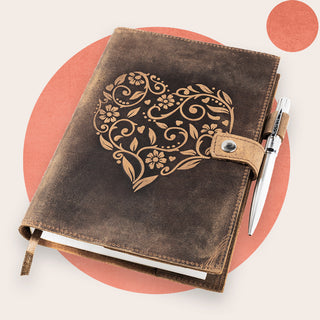Are you looking to keep better track of your eating habits? Do you need a food diary to help you with the task?
Then step forth as we explain how they can be of use to you and how to use one yourself!

What is a Food Diary?
A food diary (or food journal if you prefer) is a tool by which you can keep track of what you eat and drink throughout the day. The world goes by so fast that it can be difficult to keep track, and if you are trying to lose weight or foster some good eating habits, it can be necessary to get some help with:
- how much you consume
- who you eat with
- when and where you eat
- how you feel during and after each meal or snack
They can be a short-term solution to food sensitivities just as they can be for those looking to track their eating habits long-term.

What are the Benefits of Using a Food Diary?
There are at least a few that have been approved by food journals and doctors.
Healthy Habit Forming
Keeping track of what you eat and drink is a great way to become more aware of your habits of consumption. Looking back on it from within yourself, it can be difficult to conceive of, though seeing it written down on paper might make it easier to comprehend what you have been putting into your body.
Likewise, it can help you stick to your healthy eating goals, avoiding mindless snacking and instead sticking to regular and fulfilling meals. It can be a great thing to pair with fitness journaling.
Food Sensitivities
It is quite common for a doctor to ask a patient to keep track of their eating habits in a food diary if they want to find out more about their sensitivities to certain foods. Those who are suspected to have irritable bowel syndrome (IBS) are asked to keep track of everything they eat and drink over a certain period as well as the effect that this has on the body.
Other conditions that benefit from the use of a food diary in this way include other food allergies, acid reflux, indigestion, or non-celiac gluten sensitivities. All of these things can be worsened by the intake of certain foods or drinks.
Before embarking on any such quest to assure yourself of a certain food sensitivity that you believe you have, it is recommended that you consult a professional dietician if at all possible. Such a person can help to evaluate the food journal and determine whether any of the ingredients therein might be part of an intolerance of some sort.
Weight Control
Sadly, one of the main reasons people take up a food diary isn't necessarily to find out more about their bodies, but rather to fit their bodies into a particular mold. Weight loss and losing weight aren't going anywhere, but if a food diary is going to promote these things alongside mindful eating, then that's okay.
Certain studies have, in fact, linked the use of self-monitoring methods like food diaries to significant weight loss as it comes from within yourself as opposed to external stimuli. Likewise, even if you are just getting your other health info from watching TV, it can still be great to keep track of what you eat so you know which things really put on the pounds.
Getting Started with Your Own Food Diary
Here are some top tips to get you started on your own food diary.
As You Go
Waiting until the end of the day to make a note of all the things you have eaten and drank during the day is a recipe for disaster. You are just asking to forget all of the specific little things that you consumed along the way, not to mention forgetting the specific portion sizes of the various things that you consumed.
Instead, make a note of everything you eat as you eat it so that you don't forget anything along the way, no matter how big or small it might be. This is the best way to ensure that your food diary is as accurate as possible. If you can't always have your food diary to hand, then at least make a note that you can add to it later.
Everything
Further to the previous point, try to make a note of absolutely everything you consume. No matter how small it may be, all of the little things add up, even if it doesn't feel like such a big deal at the time.
Such an exercise is much more important if you are looking to pinpoint the allergic reactions incurred by specific foods rather than general daily food consumption. Even small quantities can have an effect on your symptoms, so keeping a food diary that is as accurate as possible is the best way to ensure that you are isolating those food sensitivities for all to see.
Specificity
Just as you should make a note of absolutely everything you consume - and just as you should make a note of it as soon as possible - you should also be as specific as possible about the consumption itself.
This can involve making a note of all the ingredients, spices, seasonings, etc, that are used in the meals you are consuming, but also can be relative to portion sizes and the like.
Try working on your own scale for measuring what you consume that you can adhere to as closely as possible throughout the course of the food diary. This might mean simply estimating your portion sizes - especially if you are prone to eating meals out at restaurants - visually comparing the portion sizes to something you know well. This can be a deck of cards, a baseball, or anything of that ilk.
Apps
Just as there are travel apps to ease the process of booking flights and hotels and seeing more of the world, there are also plenty of apps out there to help you keep track of your eating.
At their most simple, they can be an apposite alternative to the use of ordinary pen and paper diaries, allowing you to conveniently write everything down without any writing materials per se.
Some apps can even provide an extensive range of different foods and drinks that you can add to the digital diary, providing an approximate caloric content that can then be added up without a calculator.
Such an enterprise is ultimately intended to save you time and eschew guesswork as much as possible, allowing you to instantly see more accurate information about food sensitivities and caloric intake.
Moods
Though many simply use a food diary to keep track of the consumption of food and drink in their daily life, they can also be used as an extra way to keep track of your emotions and mood changes. Indeed, much as a self-esteem journal helps you to raise your spirits, a food journal can also be useful in tracking what brings your self-esteem down in the first place.
This is especially useful if you feel as though your emotions are being more viciously triggered by the various things you consume - e.g. caffeine and sugar - than is otherwise normal. Determining which ingredients you consume are exerting more of an influence on you in this way can help you determine which you need to rid yourself of in order to have more control over your mood.
Final Words
So, there you have it! Hopefully, you are now feeling ready and able to start your own food diary!
FAQs Food Diary
HOW DO YOU WRITE A FOOD DIARY?
By following the 5 golden pieces of advice: 1) keep track as you go, 2) write down everything, 3) be specific, 4) use an app, and 5) monitor your mood.
ARE FOOD DIARIES A GOOD IDEA?
Unless you have a pre-existing tendency toward eating disorders, yes.



